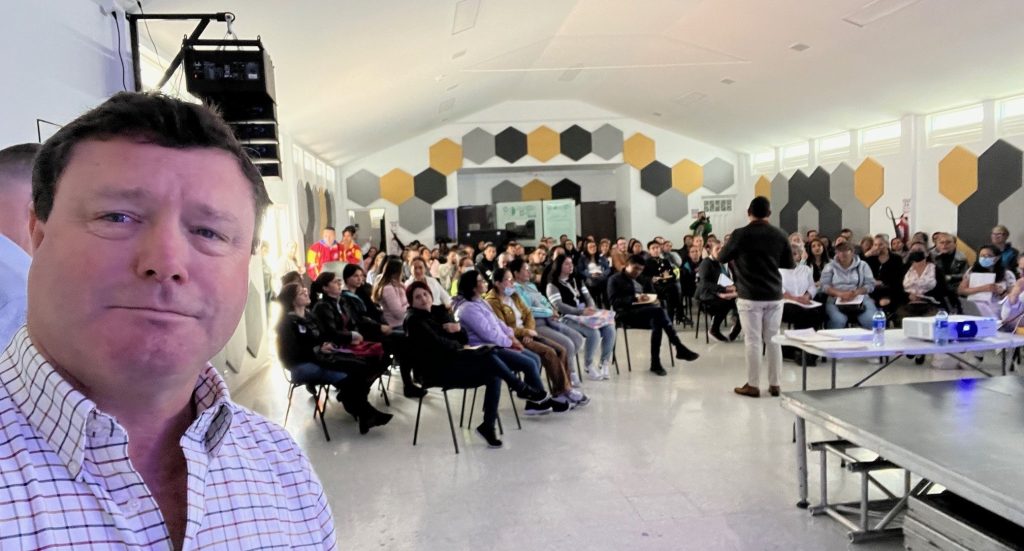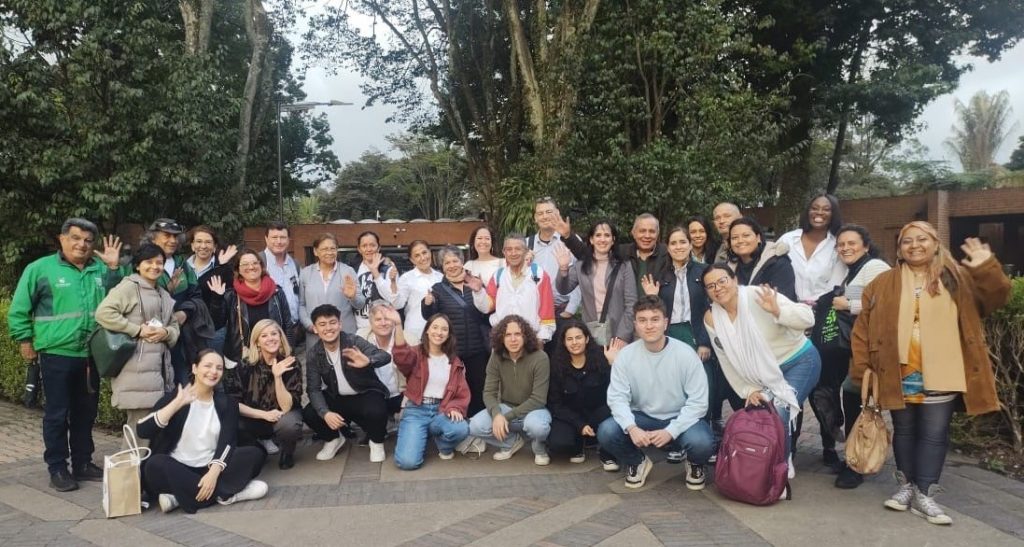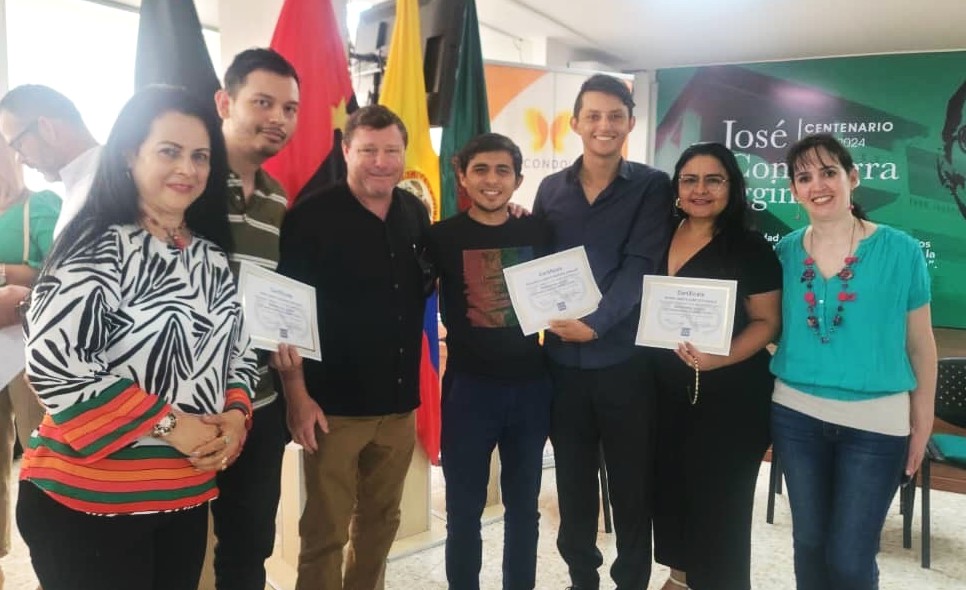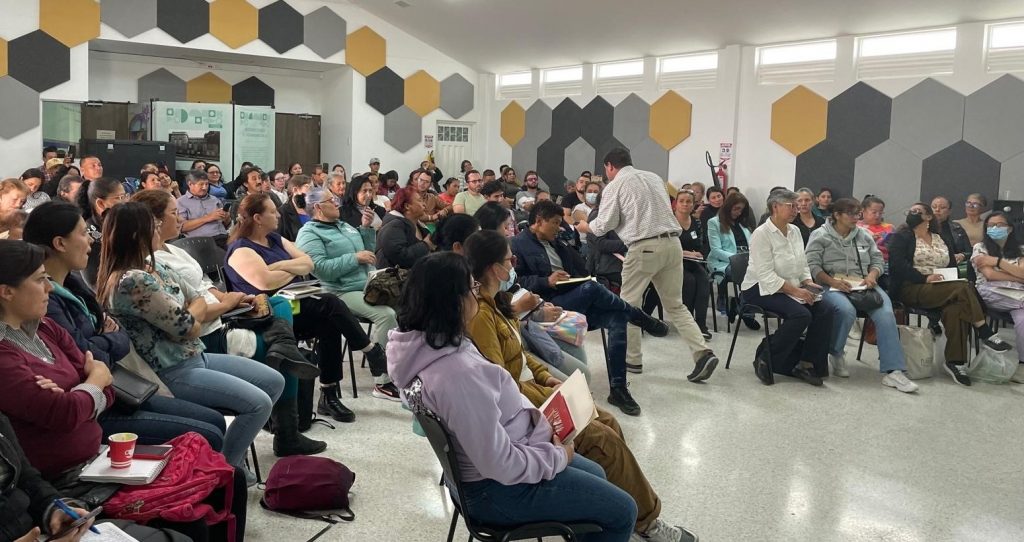
As chairman of Canyon Angels at Grand Canyon University’s Colangelo College of Business, Tim Kelley is accustomed to setting up limited liability companies for $85 in 15 minutes.
And as part of a group of professors and entrepreneurs, he wants to do the same for potential Colombian entrepreneurs.
“It’s become a very pragmatic training, and the spirit of entrepreneurship at the grassroots level is just wonderful to see,” said Kelley, who's also his college's Chair of Entrepreneurship.
This marks Kelley’s third year teaching in the Develop Your Model of Entrepreneurship program, founded by John Dobson, associate professor at Clark University in Worcester, Massachusetts. Dobson has taught entrepreneurship classes in countries such as Canada, China, Colombia, France, Honduras, Mexico, Malaysia, Nepal, Spain, the Philippines, Uganda and England.

The program aims to provide entrepreneurs in developing economies with access to worldwide entrepreneurial education.
Its one- to two-day workshops are held in partnership with multiple cities throughout Colombia, as well as the Bogotá Botanical Gardens and several universities, Kelley said.
The enrollment was about 100 during Kelley’s first year but has since grown to 170 in cities such as Bogotá and Cúcuta, Kelley said. Representatives from four universities in Venezuela drove as many as eight hours just to attend sessions in Cúcuta, located near the Venezuelan border.
Kelley and his fellow group of professors from Harvard, the University of California San Diego and Clark are seeking ways to assist informal entrepreneurs become registered businesses despite the thick layers of bureaucracy in areas such as Latin America and Africa.
Many countries in those regions, said Kelley, follow a civil law system in which entrepreneurs need to contact a local notary public, who are comparable to a magistrate judge in that system. That process often takes thousands of dollars and months to incorporate.

Kelley said Colombia has attempted to mitigate upfront costs and reduce the regulatory burden, but payroll taxes and income taxes under a graduated system present another set of challenges for emerging markets.
Nevertheless, he has noticed an increasing percentage of interest.
“They view it as the path to economic development so you don’t have people depending on the government,” Kelley said. “They literally work to serve one another. It’s a beautiful model. That’s why capitalism works.”
Sometimes trips to Colombia will include a team of four to six teachers visiting farms and some of the more than 12,000 micro urban farmers.
“We’ll literally say, ‘Where are your customers? Let’s go talk to them,’" Kelley said.
“We’ll show them a business with the food they’re growing.”
Kelley’s interest started four years ago when he met professors from Clark and Harvard at an entrepreneurship training conference at Notre Dame.
They discovered that Kelley often visits Mexico and Latin America with a passion for entrepreneurship while being fluent in Spanish.
That led to an invitation to join the Develop Your Model of Entrepreneurship program. Kelley quickly volunteered his services.
“I love it,” Kelley said. “It’s my mission in life. It’s why I’m passionate about entrepreneurship and the chance to spread the Gospel, so to speak, of freedom.
“It’s what I do. Every chance I get, I’ll go anywhere.”

And that enhances GCU’s stature in the entrepreneurial world.
“When they hear about our program, they’re shocked at what we offer,” Kelley said. “And none of the universities have anything comparable. “They’re very intrigued with what our ecosystem is.”
That has culminated in Kelley conducting seminars and Zoom calls with multiple groups. “It's a great chance to spread the great works of GCU around the world,” Kelley said.
GCU News Senior Writer Mark Gonzales can be reached at [email protected]
***
Related content:
GCU News: Listening to mom pays off for Canyon Challenge winner
GCU News: Here's the pitch: Canyon Angels students learn from expert





















































